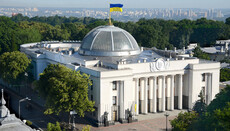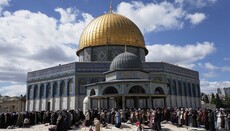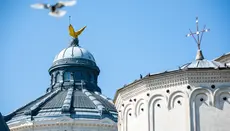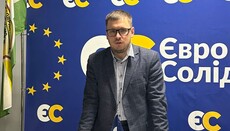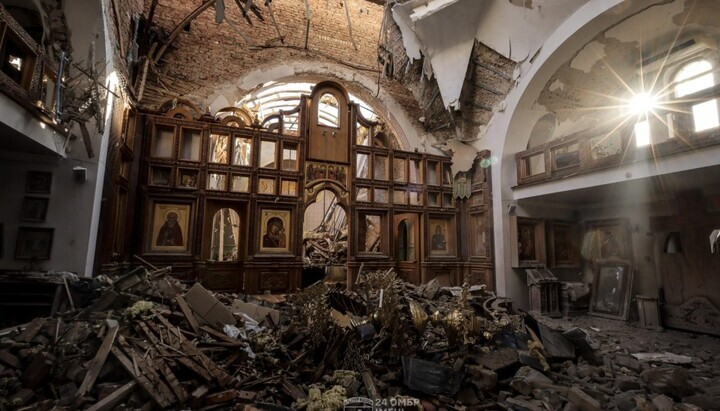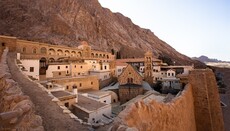Serbian hierarch: Patriarch Bartholomew is not the head of Orthodox Church
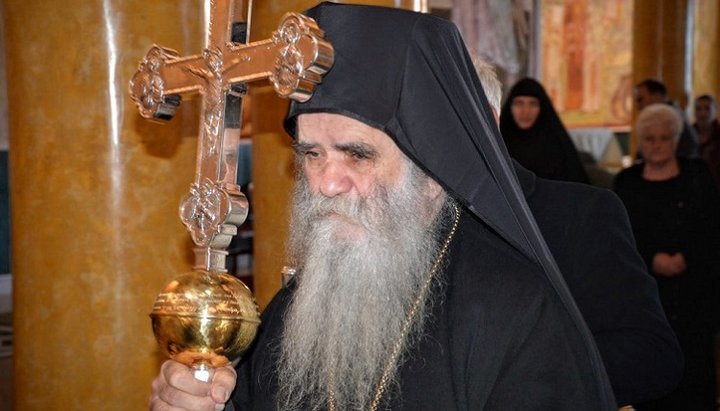
Metropolitan Amphilochios (Radovic) recalled that the supreme body of the Church is a Pan-Orthodox Council which solely can resolve the problems facing Orthodoxy today.
The Patriarch of Constantinople cannot be called the head of the Orthodox Church, since the Church has only one Head – Christ. The Archbishop of Cetinje, Metropolitan of Montenegro and the Littoral Amphilochios announced this on October 26, 2019, after the liturgy in the temple of the Nativity of the Most Holy Theotokos of the Cetinje Monastery. This was reported by the website of the Montenegrin-Littoral Metropolis of the Serbian Orthodox Church.
“Yesterday we had a meeting with a commission of the Patriarchate of Constantinople led by Metropolitan John of Pergamon regarding the events in Ukraine,” said the Serbian hierarch. “Unfortunately, the Patriarch of Constantinople continues to pursue his line and it will not be so easy to overcome it.”
He explained that the views of the above commission in relation to Ukraine are based on the role of the Patriarchate of Constantinople throughout history, "but their problem and the problem of many others is that they do not realize that times have changed."
“Our Synod and we wrote to the Patriarch of Constantinople that the era of Constantine began with the holy Emperor Constantine, but then ended in 1453 with the fall of Constantinople as a result of Turkish occupation, and in 1918 with the martyrdom of the Russian imperial Romanov family,” the hierarch noted.
He added that Constantinople played a large role in the time when Emperor Constantine transferred the capital from Ancient Rome to the new Rome, “and the fact that he transferred the capital of the Empire that ruled the Mediterranean region, not to mention the whole world for a thousand years, really made it possible for Constantinople to have a great mission, especially for us, Slavic nations.”
“The Slavic peoples adopted the Orthodox faith through Constantinople, and then, subsequently, the independence of their Local Churches,” said His Eminence Amphilochios. “This is all the work of the great Patriarchate of Constantinople. But now is another time, and it is imperative that the Church, respecting everything that happened in history, still build its future on those first centuries of its history, when it was not so closely interwoven with the authorities.”
The hierarch recalled that the Church was associated with power when it became Christian, so starting from Emperor Constantine to Emperor Nicholas II "it was a Christian government, Christian rulers, Christian nations, Christian states."
“At present, however, we no longer have Christian rulers; we don’t even have Christian authority, and even people who were Christians – how much Christian are they today? Therefore, the synergy of power and the Church, which was the case throughout history, unfortunately, no longer exists today. The Church is called to live a real life and everything that happens in it, especially in relation to crucial decisions in the spirit of the Holy Fathers, i.e. in the spirit of the conciliar mind, in the spirit of that first Jerusalem Council of the fiftieth year A.D., at which it was pronounced ‘by the will of the Holy Spirit and ours’. This is what our Church teaches today and asks the brothers of Constantinople so that it is no longer possible for someone to make ultimate decisions, whether it be Constantinople or Belgrade,” emphasized the Metropolitan of Montenegro and the Littoral.
At the same time, Vladyka Amphilochios pointed out that since apostolic times the Pan-Orthodox Council has been the supreme body of the Orthodox Church, “and the problems which the Orthodox Church is confronted with today can only be solved by the Council, the Ecumenical Council, the Pan-Orthodox Council,” and one must pray to the Lord for catholic spirit to be restored in the Church of Christ with all due respect to history and to the Patriarchate of Constantinople being first-throned.
“The Patriarch of Constantinople cannot be called the head of the Orthodox Church – as it is recorded in the Tomos of the Ukrainian Church,” added the hierarch. “It was during the Byzantine Empire and at a time when other kingdoms and states functioned under the Byzantine model and the then rulers participated in the life of the Church. <...> Today the state is secularized, people follow those secularized paths, rulers are often godless, and therefore, it is no longer possible to side with the government no matter how much respect we might have for the authorities.”
The metropolitan emphasized that in the Church of Christ there is only one Head – Christ, and “there are no other heads or superiors. All the rest are apostles testifying of Christ as the Head of the Church and of the Church as One, Holy, Catholic and Apostolic, to which we belong and which we serve.”
Recall, on October 24, the delegation of the Patriarchate of Constantinople arrived in Belgrade to conduct negotiations on Orthodox issues with Patriarch Irinej and hierarchs of the Serbian Church. All members of the delegation are strong advocates of the OCU.






